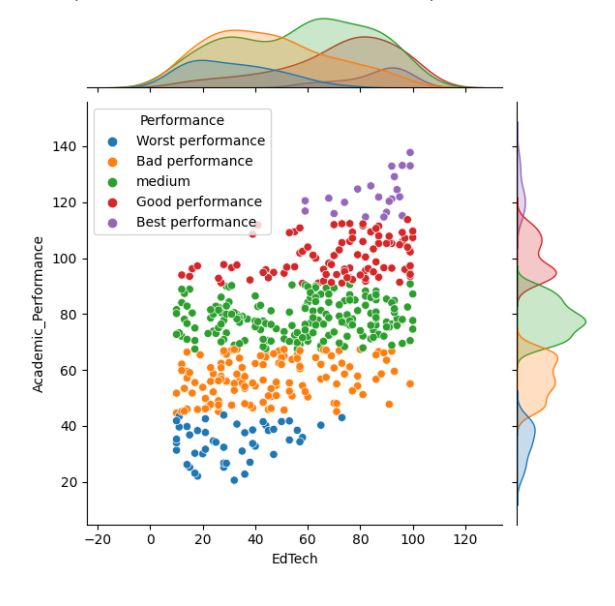Examining the Impact of EdTech Integration on Academic Performance Using Random Forest Regression
Keywords:
Academic performance, Edtech, IoT, Schools, StudentsAbstract
EdTech has the ability to revolutionize the learning process by enhancing student involvement, tailoring lessons to the unique needs of each student, facilitating distance and online education, enhancing evaluation and feedback, streamlining communication among classmates, and opening up a wealth of new resources for teachers. The goal of this study is to see whether deploying EdTech in schools enhances students' academic performance. The Random Forest Regression has been carried out with primary datasets of 479 high school students. In order to avoid any possible omitted variable biases, this study incorporated other aspects such as student involvement, family income, teacher-student ratio, and students' healthy lifestyle. According to the results of the Random Forest Regression, the integration of EdTech in schools seems to be essential to boost academic performance levels. Student involvement, teacher-student ratio, and a healthy lifestyle are determined to be important variables in enhancing academic achievement levels. It was also discovered that the factor of family income was the least important. The findings of this study imply that academic achievement is dependent on numerous variables, and hence concentrating on a few aspects may not substantially help students with low academic performance. While technology may provide numerous advantages to education, it is crucial to recognize that it must be utilized in combination with a well-designed curriculum and competent pedagogy in order to be genuinely successful.

Downloads
Published
How to Cite
Issue
Section
License
Copyright (c) 2020 ResearchBerg

This work is licensed under a Creative Commons Attribution-NonCommercial-NoDerivatives 4.0 International License.




